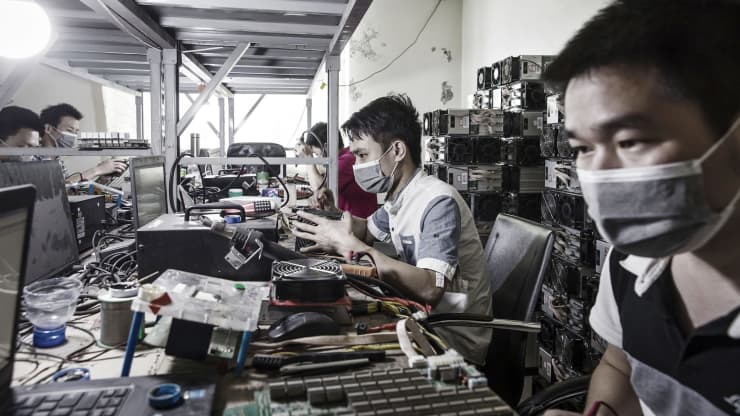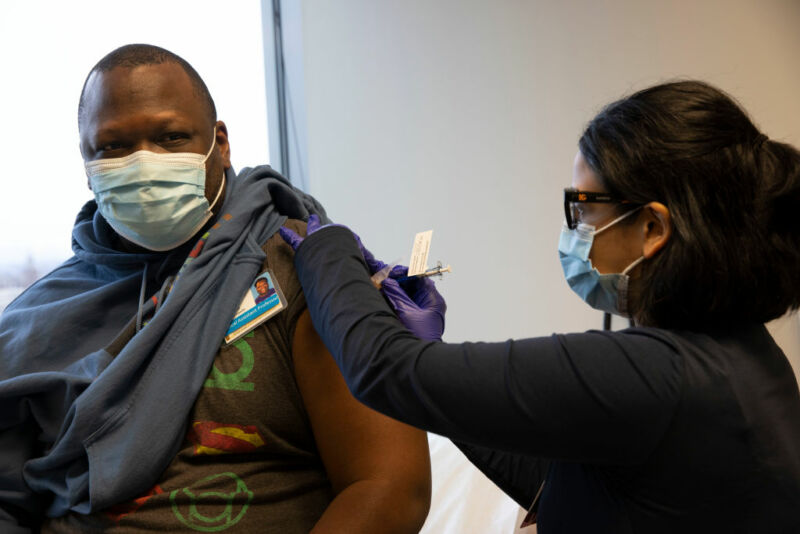   
Highlighted Stories!
Three Key Takeaways From the Biden-Putin Summit  Moscow and Washington have turned a page from the Trump era. Moscow and Washington have turned a page from the Trump era.
U.S. President Joe Biden and his Russian counterpart, Vladimir Putin, met in Geneva, Switzerland, on Wednesday for their first in-person summit as the relationship between their two countries has deteriorated to its lowest point in decades.
The meeting was seen as an effort by both countries to establish ground rules to ease tensions in the wake of a series of cyberattacks attributed to Russian hackers, sanctions over Moscow's alleged interference in the 2020 U.S. presidential elections, and a rally of diplomatic expulsions.
As an important first step, the two leaders agreed to return their respective ambassadors to Washington and Moscow after they were both recalled for consultations earlier this year.
After nearly four hours of meetings, Biden and Putin held separate press conferences, where they characterized the summit as productive and outlined a limited range of areas for further discussion on cybersecurity and prisoner exchanges. In a joint communiqué issued after the meeting, the two presidents reaffirmed their commitment to averting nuclear war and announced plans to resume strategic stability talks to lay the groundwork for future arms control negotiations.
Here are some key takeaways from the Geneva meeting. |
� | � |  | |
It's Time to Stop Celebrating Charisma 'Charisma' is often just narcissism in disguise. 'Charisma' is often just narcissism in disguise.
Business sites are jam-packed with tips to become more charismatic, profiles of charismatic leaders, and excavations of their habits and tricks. The implied message is crystal clear -- charisma is a valuable tool to get ahead in business and life and you should do everything in your power to cultivate it.
That message is also wrong, according to a huge number of experts. Charisma, they argue, is often just narcissism in disguise, and while it dazzles in the short term it usually leads to destruction for both companies and individuals in the longer term.
The case against charisma
What is charisma exactly? The dictionary tells us it's "compelling charm that can inspire devotion in others." That sounds nice. The problem is what humans generally find charming. We're dazzled by confidence and self-assurance. The person who claims to have all the answers is generally the one most likely to end up in leadership.
This tendency to follow perceived strength may have made sense back when we were living in small groups huddled around fires terrified of toothed predators. But in our current complex, unpredictable world, claiming to have all the answers is more often a sign of hubris than it is a signal someone can keep their followers safe from the lions at the door.
A fast-changing world requires the humility to know what you don't know, take others' ideas onboard, admit when you were wrong, and change course. "Charisma" often gets in the way of all that. Which is probably why a mountain of data shows charismatic/narcissistic leaders lead to more risk and lawsuits but less integrity and team cohesion. |
| � |  | |
China is kicking out more than half the world's bitcoin miners – and a whole lot of them could be headed to Texas China has long been home to more than half the world's bitcoin miners, but now, Beijing wants them out ASAP. China has long been home to more than half the world's bitcoin miners, but now, Beijing wants them out ASAP.
In May, the government called for a severe crackdown on bitcoin mining and trading, setting off what's being dubbed in crypto circles as "the great mining migration." This exodus is underway now, and it could be a game changer for Texas.
Mining is the energy-intensive process which both creates new coins and maintains a log of all transactions of existing digital tokens.
Despite a lack of reserves that caused dayslong blackouts last winter, Texas often has some of the world's lowest energy prices, and its share of renewables is growing over time, with 20% of its power coming from wind as of 2019. It has a deregulated power grid that lets customers choose between power providers, and crucially, its political leaders are very pro-crypto – dream conditions for a miner looking for a kind welcome and cheap energy sources. |
How Old Are You, Really? Your 'Performance Age' Can Tell You It shows how healthy you are more than your chronological age does, according tonew research. It shows how healthy you are more than your chronological age does, according tonew research.
You know how good getting out on your bike makes you feel. But it also may be doing your body more good than you thought, too: Getting out for a ride on the regular may help you live about 10 years longer than your more sedentary peers, a new study published the European Journal of Preventive Cardiology suggests.
The study included 126,356 men and women (with an average chronological age of 54) who had an exercise stress test - which measures how well your heart responds to the stress of exercise - done for the first time at Cleveland Clinic between 1991 and 2015.
To estimate people's performance age - which is called A-BEST (Age Based on Exercise Stress Testing) in the study - researchers crunched the data on their exercise capacity (in metabolic equivalent of task, or METs), heart rate during exercise, and heart rate after exercise. Having a higher exercise capacity and a quicker return to regular heart rate after exercise was linked to a younger performance age. |
| � |  | |
We have another highly effective COVID vaccine, based on different tech While not needed for the US, it should help with the global vaccine push. While not needed for the US, it should help with the global vaccine push.
Today, a company called Novavax announced that it had completed a large efficacy trial of its COVID-19 vaccine, and the news was good. The vaccine is highly effective, it blocked severe disease entirely, and it appeared to work against some of the more recently evolved virus variants. The company says it can produce 150 million doses per month by the end of the year, and the vaccine is stable when stored with normal refrigeration, so it could play a big part in the effort to administer vaccines outside of industrialized nations.
Different tech
So far, US citizens have had the choice of RNA-based vaccines, like the offerings from Moderna and Pfizer/BioNTech, or a vaccine based on a harmless virus engineered to carry the coronavirus spike protein, as used in the Johnson & Johnson vaccine. (The AstraZeneca and Sputnik vaccines are similar to J&J's.) Outside the US, many countries have used vaccines based on an inactivated coronavirus.
The Novavax vaccine uses an entirely different technology. Vaccine production starts by identifying a key gene from the pathogen of interest - the SARS-CoV-2 spike protein, in this case - and inserting it into a virus that infects insect cells. Insect cells can easily be grown in culture, and they process any proteins they make in the same way that human cells do. (This processing can involve chemically linking sugars or cleaving off superfluous parts of the protein.) The activity ensures that the purified protein will be chemically identical to the spike protein found on the surface of the SARS-CoV-2 virus itself.
The company's description of the vaccine development from here on out is a bit vague, but it appears that the vaccine builds a large complex of proteins that includes multiple copies of the spike protein. So rather than being made up of individual dispersed copies of the spike protein, the vaccine consists of a smaller number of large complexes that have multiple copies of the spike. These complexes can be described as nanoparticles and are similar in scale to an actual virus, hypothetically enhancing the immune system's response. |
| � |  | |
7 Rules for Job Interview Questions That Result in Great Hires Some of the long-held ideas about how to conduct interviews are no longer accurate. For example, there's no such thing as a surprise interview question anymore. With sites like Glassdoor.com, candidates can identify each of your likely interview questions and expected answers ahead of time. With that information, candidates now routinely prepare and video their practice interviews to the point where their responses are universally impressive, if not genuine or accurate. Some of the long-held ideas about how to conduct interviews are no longer accurate. For example, there's no such thing as a surprise interview question anymore. With sites like Glassdoor.com, candidates can identify each of your likely interview questions and expected answers ahead of time. With that information, candidates now routinely prepare and video their practice interviews to the point where their responses are universally impressive, if not genuine or accurate.
It's not just surprise questions that are a thing of the past. Research at firms like Google has proven that "brainteaser questions" can contribute to a costly miss-hire, that having a candidate meet any more than four interviewers doesn't increase new-hire quality, and that for many jobs, factors like grades, test scores, and schools attended don't predict success in the position.
So it's time to rethink your interview questions with a focus on work-related questions that are harder to prepare for and to fake an answer to. |
| � |  | |
TradeBriefs Publications are read by over 10,00,000 Industry Executives |






No comments:
Post a Comment